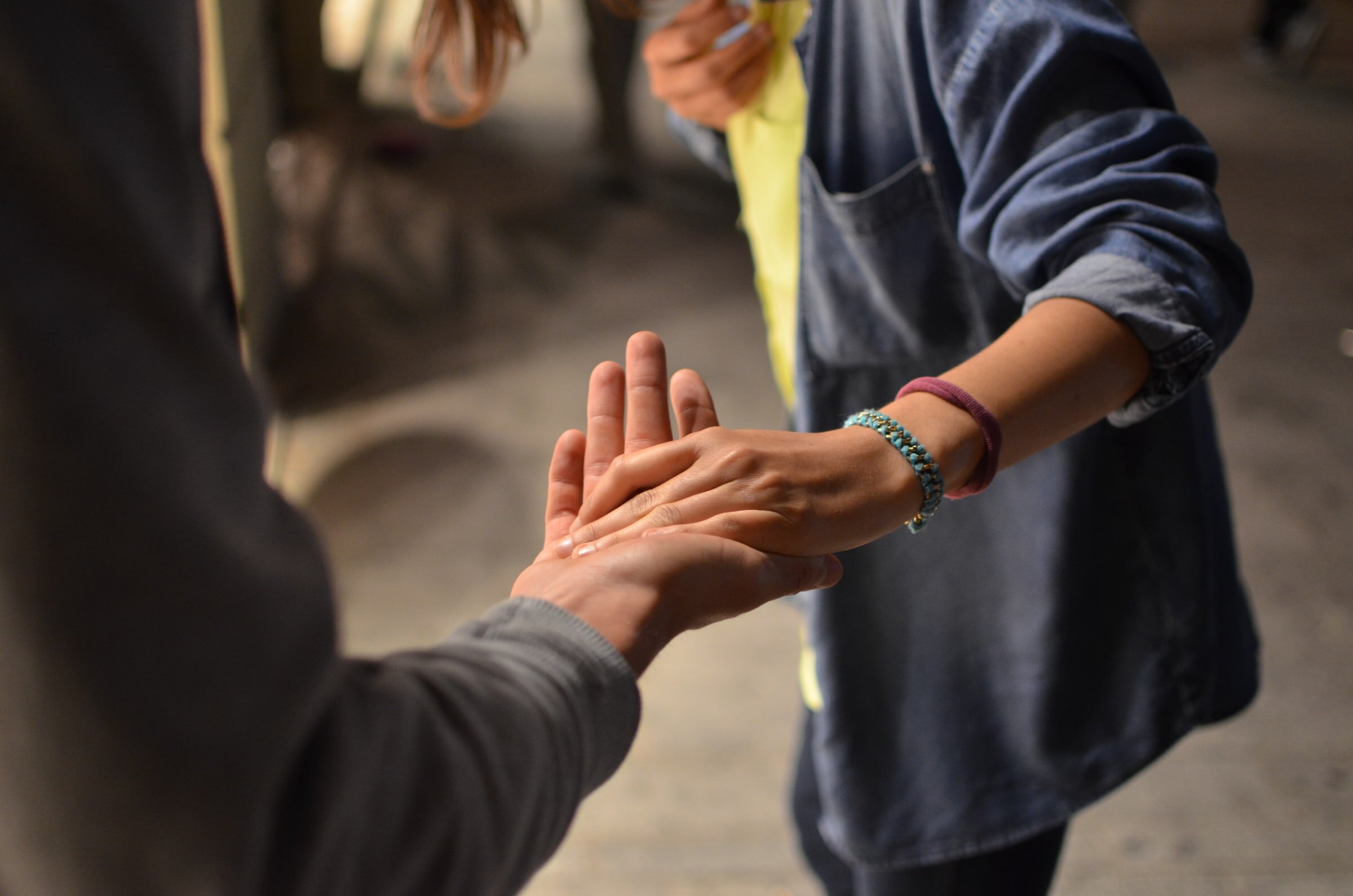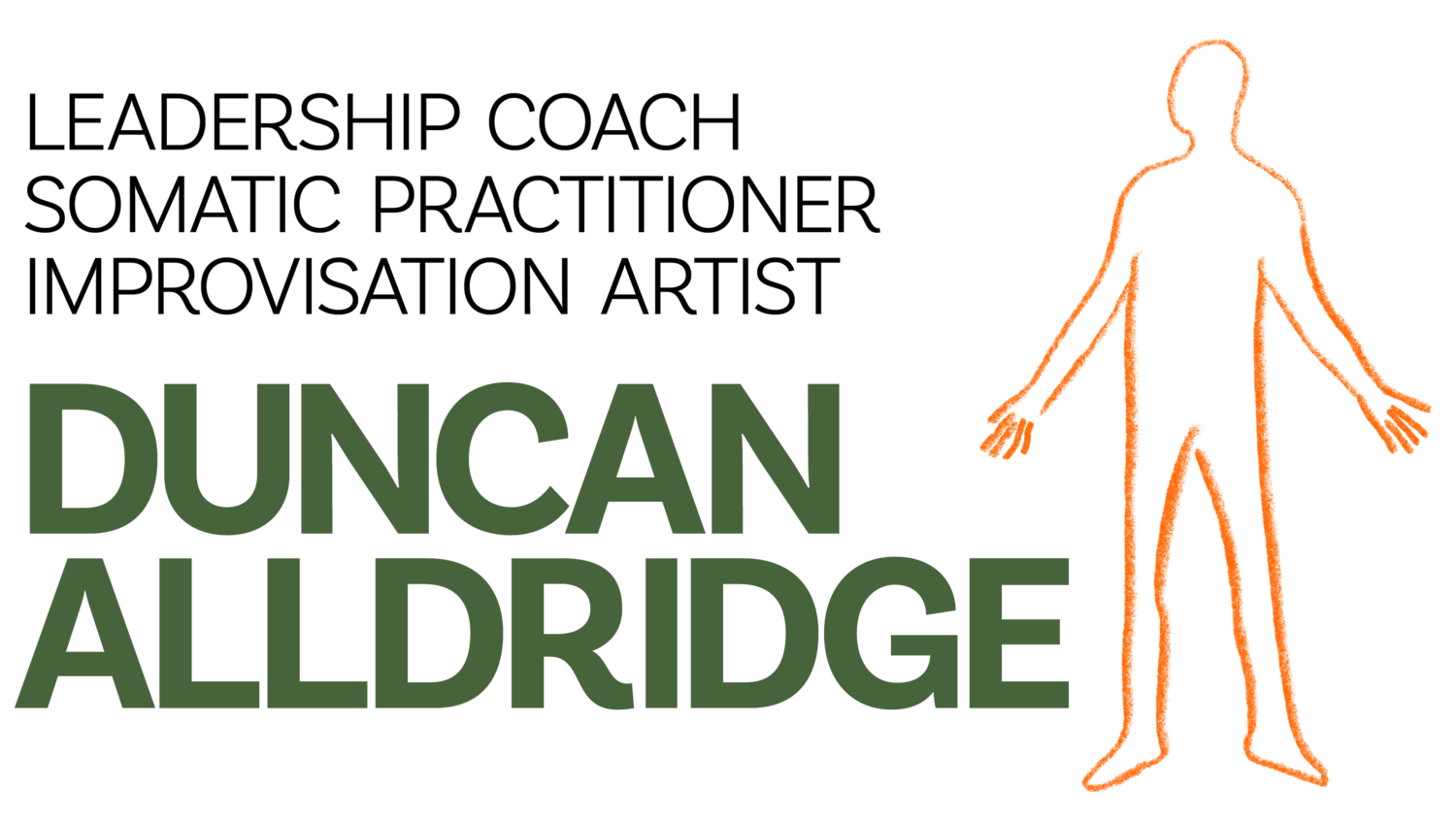
Leading with Awareness
Embodied team and individual leadership programmes
Individual programmes in developing leadership, career and personal development
What might be possible for your organisation if your team engaged in an ongoing programme of learning? Imagine staff in the daily active business of practicing the behaviours and communication skills they need to rise to the challenges your company faces. How would it be to be part of a programme where your team engages with practices that empower them to take new actions that impact outcomes during the day?
My approach centres the leader in their body. We’ll work with awareness and identify areas for growth; acknowledge the behavioural history we’ve learned; generate presence; and cultivate qualities of authenticity and integrity. As well as being a mirror and sounding board for my clients - I walk with them. It’s important we find a mutual place for trust, are clear about outcomes, and we can measure how we are moving towards what matters for the client.
Let’s talk about bespoke learning programmes for your organisation. The pathways are client based and we’ll work to develop leadership capacities e.g. generating and managing moods, cultivating and repairing trust, coordinating with others, motivating and mobilising teams, remaining emotionally balanced during change and upheaval and listening deeply and moving skilfully with others’ concerns.
Get in touch to talk about bringing an embodied learning pathway into your organisation.
Programmes for a creative, organised and high-performing team
Congruence and Conflict Resolution
If everyone was a little less reactive in your organisation - what might be possible?
Gossip, silos, political agendas and unresolved grievances can make relationships difficult. When, for example, a client review doesn’t happen on time, it’s often not because the tasks leading to it were over-challenging, it’s because the relationship history of the individuals working on the review manifest, colleagues get triggered, and they find working with each other difficult.
Perhaps your team has an idea of their individual strengths and weaknesses. Yet completing a questionnaire is very different to taking a grounded action in the heat of the moment. Knowing something in the head is not the same as learning something in the body.
What you need is an embodied approach to learning, where colleagues can learn to work alongside their experiences of discomfort, and learn to choose more effective ways of engaging. This means working ‘with the body’ to get to know what happens when we are triggered, what our ‘historical’ (fight, flight, freeze) response is, and how to return to a relaxed, centred state when we are in the heat of the moment. Once here, and, for example, the blood has stopped pumping, the face flush has settled and the shoulders have reset, the body is freed to make a new move.
New choices emerge and, with practice, we can learn to observe and work alongside our historical tendencies, and lead with what matters to us now.

“Duncan responds to the needs of participants with a rare empathy and encourages participants to work outside their comfort zones within a safe, supportive environment. He incorporates a range of techniques within his workshops, demonstrating a clear understanding of individual learning styles resulting in inclusivity and the opportunity for individual attention.”
Neil Walker, Actor
Building Trust, Cohesion and Fluidity
Have you been privileged to experience a theatre performance where everything flows seamlessly, so much so that you felt alive to a magic you’ve seldom experienced? You felt your chin drop a little in awe of how this all ‘happened’.
If only your business teams were alive with the same sense of purpose? How might they engage with each other with the same thirst for creativity, communication and collaboration evident on the stage?
You’ve tried some team building days and taken your team off site with some success. Yet what you long for is for colleagues to take part in experiential learning that is fun, that creates space for trust, truth and laughter, and that helps teams embody skills of agility and innovation that they can bring back to the workplace.
Practicing improvisation is like yoga for professional development. It’s like a solid, strengthening workout that improves emotional intelligence, teaches you to pivot out of tight and challenging spaces, and helps you to become a more compelling leader and a more collaborative follower. Improvisation strengthens your listening muscle, and allows you to practice being fully in the moment.
Many organisations now use programmes of improvisation to improve colleagues' ability to process on the fly, develop a willingness to relinquish power, learn how to learn from failure and create space for others to contribute.
To talk further about how we can work together to bring individual and team leadership programmes into your organisation, schedule a call with me

“What a wonderful way to hold a team building event, experiencing such fun and energetic activities, hosted by Duncan. Far from the usual office training or team events, we saw our attendees step up in an extraordinary way to commit to the moment and share the experience (and many laughs) together. It was a huge success, delightfully innovative, and in its outcome a triumph for our extended team rapport.”
Victoria Swift, Learning and Development, Unilever
“I wanted to thank you for the fantastic team building day on Tuesday! Many of the team were a little anxious and didn’t know what to expect but you created such a positive space and really worked on building trust. I’m sure the impact of that work will continue to be felt and our appreciation of each team member's strengths and vulnerabilities will continue to grow. Thank you again for helping us move forward as a whole. It’s been wonderful. I hope we can do something similar in the future to keep building the team dynamic.”
Alison Griffin, Head of Engagement and Retention, UWL
“The dynamic and expertly held workshop was groundbreaking for my team and our development. In such a short time our awareness of each other’s skills grew, we laughed such a lot and as a consequence bonded like a team as never before. This was magical to be part of. I’m absolutely convinced a continuing programme using improvisation will help us grow as people, develop the leaders amongst us, and ultimately help us thrive and compete as a business.”
John Martinez, CEO, Shocklogic



